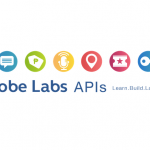At the International Supercomputing Conference (ISC) 2015 and following the opening of the company’s first global HPC (High Performance Computing) centre in Stuttgart in March 2015, Lenovo will be reaffirming its commitments and ambitions in the high-performance computing sector with a number of new partnerships and initiatives that underpin its position as a leader on the world stage of HPC. These include joining Intel’s code modernisation enablement programme and adopting Intel’s HPC scalable system framework for future products; a new partnership with Mellanox to accelerate the adoption of EDR 100Gb/s InfiniBand interconnect and server technology; SuperMUC Phase 2 now operational at the Leibniz Supercomputing Centre, and investments in supporting young talent in the HPC Advisory Council ISC 2015 Student Cluster Competition.
Commenting on the company’s focus on HPC, Vice President Strategic Alliances and General Manager of HPC worldwide at Lenovo, Brian Connors, said: “HPC continues to be at an exciting time for our industry but in particular an exciting time for Lenovo. We see great opportunities for worldwide growth in the mainstream commercial HPC market and our global footprint, deep knowledge of the China market and heritage in the commercial sector makes us a natural fit for customers wanting to work with a true global player – whether it be for analytics; big data analysis or commercial systems for industries such as manufacturing, financial services, medical and energy. We are continuing to accelerate both our business and our ambitions by investing in innovations, R&D, services and partnerships to ensure our clients can be at the forefront of HPC both today and in the future.”
Lenovo also announce that it will be joining Intel’s code modernisation enablement programme and will be working with identified clients to maximize their application performance for current and future Intel Xeon processors and the Intel Xeon Phi product family.
Lenovo is also adopting Intel’s HPC scalable system framework for next generation products targeted for HPC and Big Data. The framework enables systems to scale performance, power, and cost from small multi-node clusters up to large HPC deployments.












